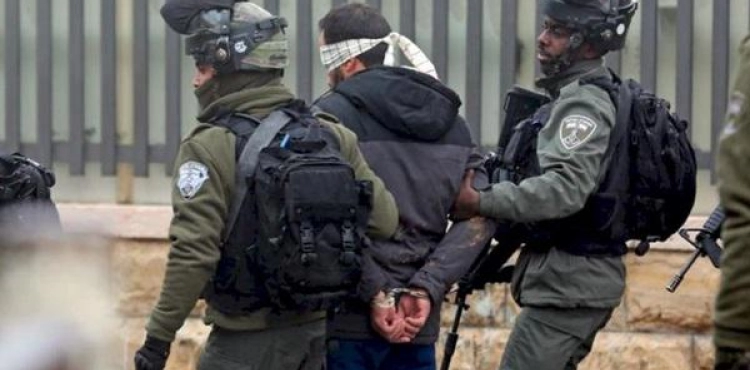Abdel Nasser Farwana, a specialist in the affairs of prisoners and freedmen, said that the Israeli occupation arrested (7) Palestinians from the Gaza Strip during the past month of January.
Farwana explained in a press statement that (6) of these citizens were arrested by the occupation forces stationed on the borders of the Strip, in separate incidents during the past month, after they infiltrated and crossed the eastern and northern borders of the Gaza Strip towards the occupied Palestinian territories in 1948.
He pointed out that the Israeli security services present at the Beit Hanoun / Erez checkpoint, a seventh Palestinian, on Monday 25-1-2021, is called Walaa Muhammad Mustafa al-Rifai (35 years) from Maghazi in the central Gaza Strip, while accompanying his wife, who is ill with cancer and trying to reach To the Makassed Hospital in occupied Jerusalem, where his wife had previously obtained a medical referral for treatment there, and she and her husband obtained Israeli permits that allow them to pass through the aforementioned checkpoint and reach the hospital to receive treatment.
Farwana said that the occupation authorities insist on making the Beit Hanoun / Erez checkpoint a place of pressure and a trap for arrest, as they previously arrested many Palestinians while passing the aforementioned checkpoint, and forced others to wait for a long time, and put many obstacles in front of travelers, without taking into account the citizens´ humanitarian needs, which leaves negative effects. The catastrophic physical and psychological consequences for the patients, their companions and their families.
The specialist in the affairs of prisoners and freedmen renewed his call to the concerned authorities of the need to pay attention to the education of citizens in the Gaza Strip, and to educate them about the methods of arrest and investigation and what they may be exposed to, in terms of interrogation, torture and pressure, during their movement through the Beit Hanoun checkpoint, or during their detention and arrest, in a manner that guarantees the protection of the individual and his social circle. It reduces the risks of arrest and its negative effects on the individual, family and Palestinian society.












